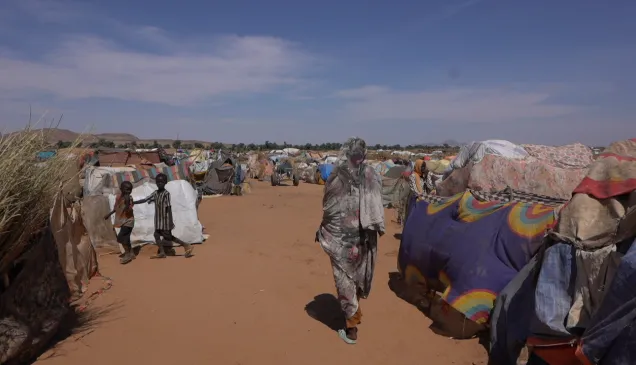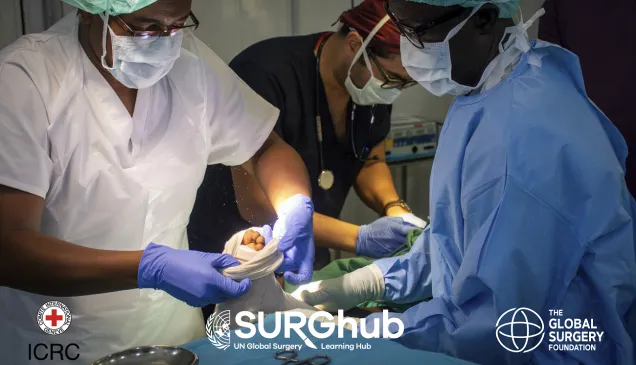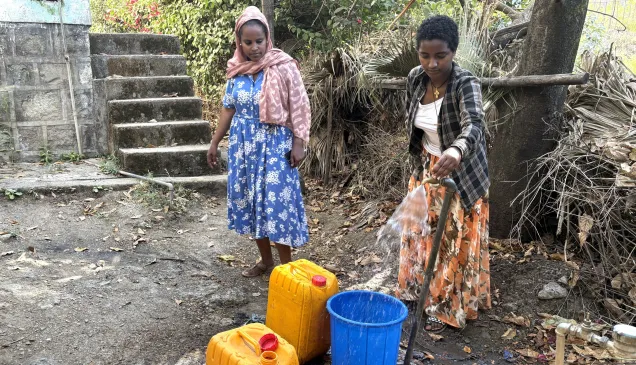COVID-19: Medicines and virtual consultation ensure safety among diabetic patients in Pakistan
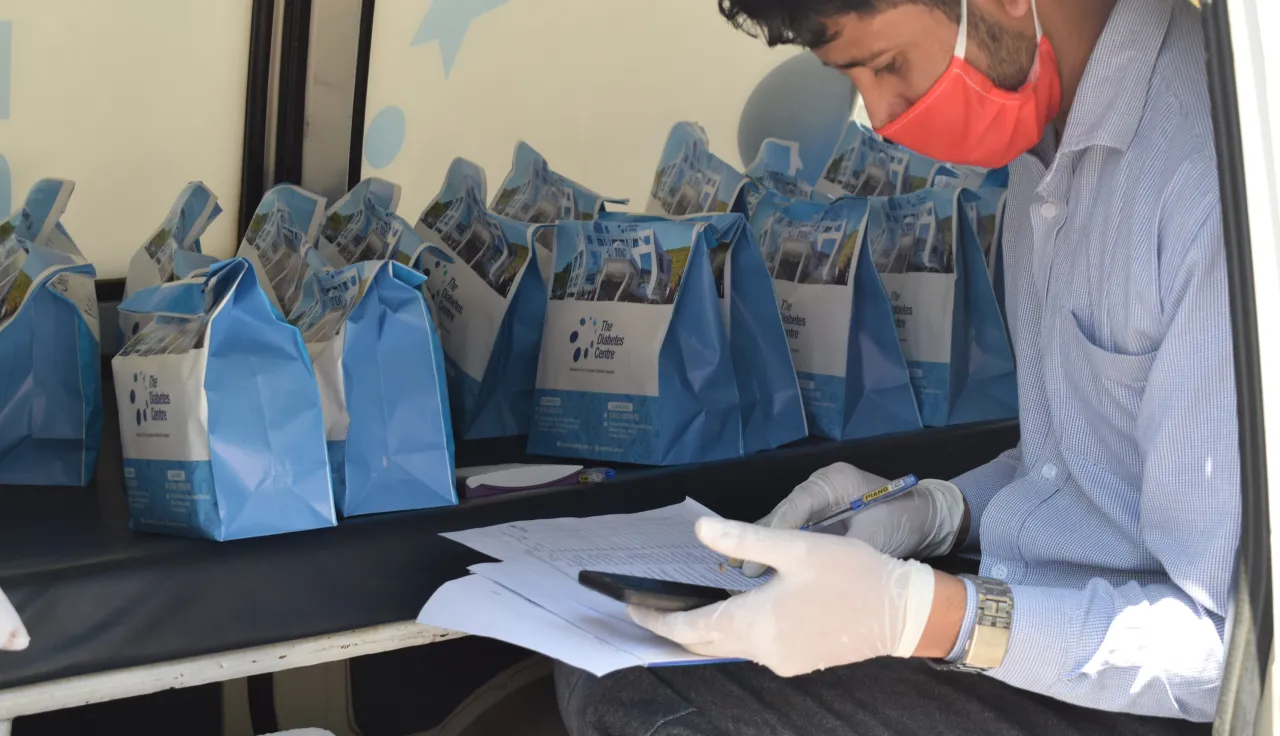
As TV channels flashed news announcing a nationwide lockdown to control the spread of COVID-19 cases in Pakistan, a sense of fear came upon Shahbaz Khan Mughal.
"It was not fear of the novel coronavirus but of the diabetes I have been living with for many years," he said.
As the lockdown progressed, I was stuck in a miserable spot. I lost business and there was no income to buy my monthly medication costing approximately 4,500 Pakistani rupees. Even if I could arrange the money for it, there was no means to go to a health-care facility for the necessary tests or consultation," added Mughal.
With five children to feed, Mughal chose to spend his savings on caring for the family while taking only half the required dose of his medicines so that the stock at home would last longer.
Living in the small village of Panjgra, in Pakistan-administered Kashmir, the 42-year-old businessman was not the only one caught in this predicament. Based on the National Diabetes Survey of Pakistan reports (2016–2017), about 26.3 per cent of the population has diabetes and the pandemic has only increased their vulnerability.
While, on one hand, diabetic patients are among those at a higher risk of developing complications due to COVID-19, on the other hand the sudden suspension of outpatient services in hospitals without suitable alternatives has made vital health care inaccessible to them.
Adding to this, loss of income due to economic slowdown has restricted many patients like Mughal from buying medicines, accessing monitoring equipment and maintaining a healthy diet.

Identifying the gap in essential care for diabetic patients, the International Committee of the Red Cross (ICRC) initiated a campaign to provide free medicines and tele-consultation for the most vulnerable sections and to spread awareness on managing health amid the pandemic.
Collaborating with the health department of Pakistan-administered Kashmir, The Diabetes Centre (TDC) and Pakistan government, the ICRC home-delivered free medicines to 1,800 patients spread across Islamabad, Rawalpindi and Pakistan-administered Kashmir.
"The medicine packs also included pamphlets on safety measures, guidelines for better management of diabetes medicines, maintaining appropriate diet and healthy lifestyle. Provincial and central authorities were also given information regarding specific attention required for diabetic patients amid the pandemic," said Dr Zohra Mhamdi, who manages the health programme of the ICRC in Pakistan.
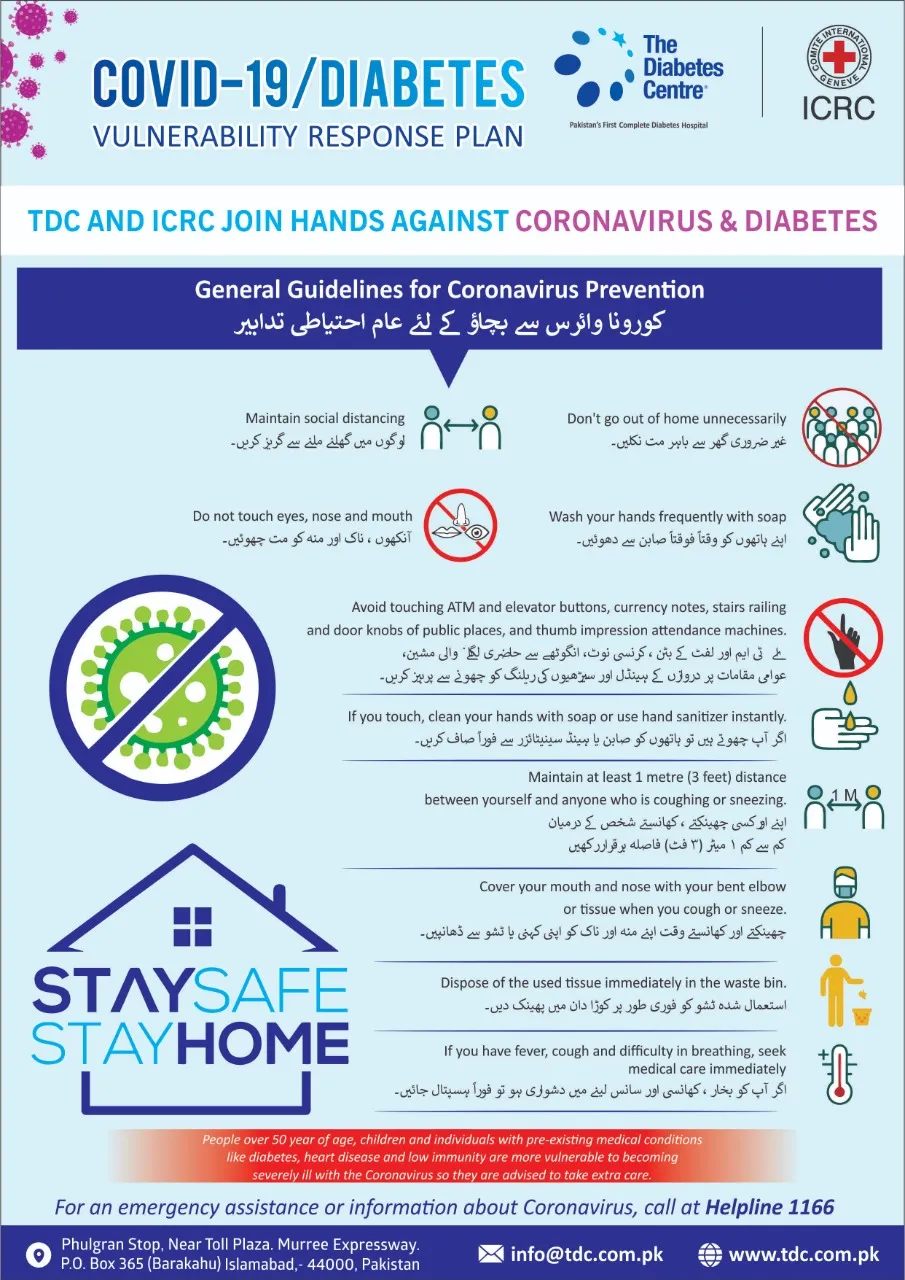
Mughal, who was one of beneficiaries of the service, recalls his surprise at the timely help that was offered. "I had run out of ideas for managing my health. Then TDC called and set up an online consultation that included a video medical examination. A couple of days later, officials from TDC and the basic health unit came home to give me medicines for about two months along with information on identifying symptoms of COVID-19 and how to stay safe," he said.
The ICRC has also been using social media platforms to share information on managing diabetes during the pandemic, managing sugar levels while fasting and about the helpline.
The medicine packs also included pamphlets on safety measures, guidelines for better management of diabetes medicines, maintaining appropriate diet
and healthy lifestyle.
For 38-year-old Shazia Bibi, who has had type 1 diabetes since she was four years old, the social media campaign was a godsend just as markets shut down in her village, Ath Maqam, and she began looking for alternatives to get medicines.
"Within five days of calling the helpline, I received a call for online consultation with a senior endocrinologist and the medicines were delivered a couple of days later. The whole process was very convenient," she said. Eager to help her family and neighbours also stay healthy, Shazia Bibi has since been sharing tips from the awareness pamphlets that she got along with the medicines.

